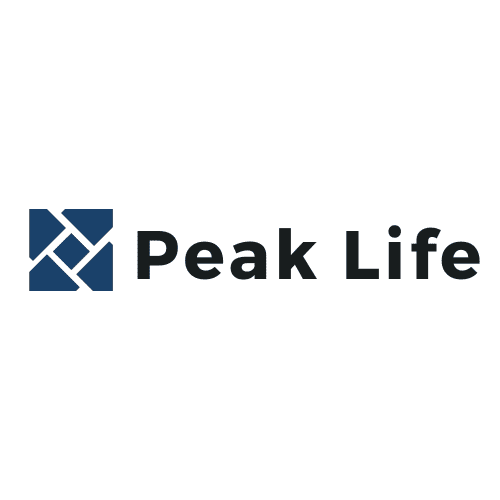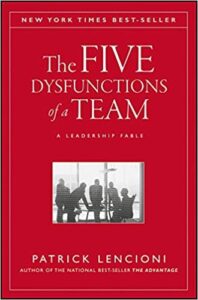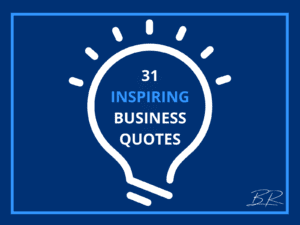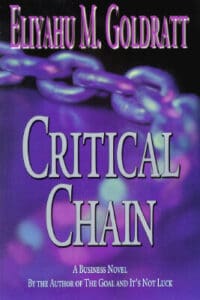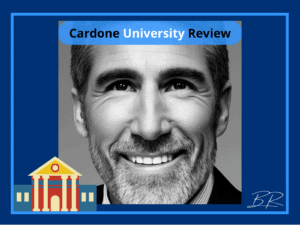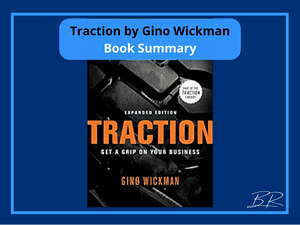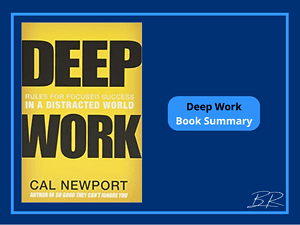34 Best Books for Engineers to Read
This post contains affiliate links that help supports this blog and cost you the exact same. If you do not wish to use affiliate links, then feel free to google the product.
If you’re an engineer, you know that continuous learning is vital to the profession. And what better way to learn than by reading some of the best books out there?
In this blog post, I list what I believe to be the best books for Engineers to read but I also believe this applies to most professions.
So scroll through and find the ones that interest you most.
Happy reading!
PS: You can read about my daily life as an Engineer here.

What are the best books for Engineers to Read?
As Engineers and professionals, we need to continuously expand our knowledge in many overlapping fields. More knowledge unlocks our potential, impact, and income(like these 5 high income skills).
There are countless books, and everyone seems to have an opinion as to which one is the best. Thankfully, there are a few books that stand out from the rest. So, here is my list of the best books for Engineers to read.
PS: If you are starting a business, check out this list of the best books to read for starting a business.
Zen and the Art of Motorcycle Maintainance by Robert Pirsig
If you’re like most people, you probably don’t spend a lot of time thinking about your everyday things like your motorcycle.
But what if there was more to everyday objects than meets the eye?
In Zen and the Art of Motorcycle Maintenance, Robert Pirsig explores the hidden depths of the things we take for granted. He shows us that everyday objects are more than just utilitarian; they also have the potential to be creative expressions.
By looking at life from this perspective, we can start to see the world in a whole new light.
The Design of Everyday Things by Don Norman
The design of Everyday Things is based on basic principles that have been around for centuries. However, the design process has evolved significantly over the years, and the history of design is full of interesting stories and insights.
In his book, Norman explores the origins of design and how it has changed over time. He also discusses the different approaches that designers take to creating everyday objects. By understanding the basic principles of design, we can learn to create products that are both functional and aesthetically appealing.
This is a must-read for anyone in mechanical engineering or engineering design.
Principles by Ray Dalio
Principles are a set of guidelines that help you make better decisions.
This is why they’re so essential for both personal and professional development. Good principles can help you solve problems more effectively, make better choices, and find greater success in life. Of course, not all principles are created equal. Some principles are more helpful than others, and it’s important to choose wisely.
That’s where Ray Dalio comes in.
As the founder of one of the world’s most successful hedge funds, Dalio has developed a set of principles that have helped him thrive in business. In his book, “Principles: Life and Work,” Dalio shares his principles for success, offering valuable insights for anyone looking to improve their life and career.
If you’re searching for guidance on how to live and work more effectively this book is required reading.
Tribe of Mentors by Tim Ferriss
I just finished reading Tribe of Mentors by Tim Ferriss for the second time and I have to say it is full of so much incredible knowledge.
It’s all about designing your life and surrounding yourself with people who can help you dream bigger goals and then help you achieve them. Ferriss interviews some of the most successful people in the modern world, including billionaires, CEOs, and Olympians, and then distills their wisdom into actionable advice that you can use to improve your own life.
If you’re looking for a book that will inspire you to achieve your dreams, I highly recommend Tribe of Mentors.
PS: All of Tim Ferriss’s books have been very valuable to me:
The 4-Hour Workweek
The 4-Hour Body
The 4-Hour Chef
Tools of Titans
The Almanac of Naval Ravikant by Eric Jorgenson
The Almanac of Naval Ravikant is a collection of essays, aphorisms, and thoughts on life from entrepreneur and technology investor Naval Ravikant. The book covers a wide range of topics, including happiness, work-life balance, wealth, success, and more.
Ravikant’s writing is thoughtful and insightful and I thoroughly enjoy his often contrary point of view.
Although this may seem like a random choice I believe this to be one of the best books for engineers to read to inspire us towards creating more impact in the world.
I Will Teach You to Be Rich by Ramit Sethi
If you’re looking for a step-by-step guide to building wealth, look no further than Ramit Sethi’s I Will Teach You to Be Rich.
In this comprehensive book, Sethi shares his systems for increasing your income, automating your finances, and investing for the future. He also busts common money myths and provides inspiring real-life stories of people who have used his methods to achieve financial success.
Whether you’re just starting out on your journey to riches or well on your way, I Will Teach You to Be Rich is an essential read to develop the skill of wealth.
The Toyota Way by Jeffrey Liker
The Toyota Way is widely considered to be one of the best books for engineers.
It covers the basic principles of mechanical engineering and engineering design and provides a detailed guide to improving manufacturing as well as management principles. The book includes chapters on research and development, design, manufacturing, and quality control. In addition, it includes the history and a variety of case studies that illustrate how Toyota has applied these principles in real-world situations.
As a result, The Toyota Way is an essential resource for any engineer who wants to improve their knowledge of the best practices in mechanical engineering, manufacturing and product development.
Good to Great by Jim Collins
In Good to Great, Jim Collins presents his findings from an extensive study of companies that have made the transition from good to great. He identified a set of qualities that all great companies share, including a focus on getting the right people on the bus and building a culture of discipline.
It turns out that the great companies have more than just stories in common and their expertise in creating a great company can be studied and applied to our own businesses.
This is Marketing by Seth Godin
In This is Marketing, Seth Godin argues that marketing is no longer about convincing people to buy things they don’t need. Instead, it’s about creating products and services that meet people’s needs and desires.
Godin provides practical advice for businesses of all sizes, from startups to large corporations. He also offers insights into how to create a marketing strategy that is aligned with your company’s values and goals while providing something the customer cares about.
This is Marketing is a must-read for anyone who wants to understand the new landscape of marketing and how to apply it to their business.
Deskbound by Dr. Kelly Starrett
In Deskbound, Dr. Kelly Starrett argues that the sedentary lifestyle of most office workers is detrimental to their health. He provides a comprehensive guide to improving your posture, mobility, and overall fitness.
Deskbound is an essential read for any engineer and any professional who spends most of their day sitting at a desk.
This book will help you understand the importance of movement and how to incorporate it into your daily routine.
The Lean Startup by Eric Ries
The Lean Startup is a must-read for any entrepreneur or an aspiring business owner. In it, Eric Ries shares his system for developing and launching new businesses, which he calls the “lean startup” method.
This method focuses on fast product launches and learning from real-world customer feedback to find out what works and what doesn’t.
Think Like a Monk – Jay Shetty
In Think like a monk, Jay Shetty shares his system for achieving success and happiness in life. He argues that the key to success is to think like a monk: focus on your goals, be disciplined, and be patient.
This book is an essential read for any professional who wants to achieve their goals and live a happy life. The monk mindset will help you focus on what’s important and let go of distractions.
The Five Dysfunctions of a Team by Patrick Lencioni
The Five Dysfunctions of a Team is great for any leader who wants to guide a high-performing team. In it, Patrick Lencioni identifies the five dysfunctions that can prevent a team from achieving its potential: absence of trust, fear of conflict, lack of commitment, avoidance of accountability, and inattention to results.
The book provides a framework for understanding and addressing these dysfunctions, and it includes an engaging fable to explore these dysfunctions as well as a variety of case studies that illustrate how the framework can be applied in real-world situations.
The Compound Effect by Darren Hardy
The Compound Effect is a great book for anyone who wants to achieve their goals. In it, Darren Hardy explains how the compound effect works by having one win or success compound into another.
He provides practical advice for setting and achieving goals, and he shares inspiring stories of people who have used the compound effect to create remarkable results.
The 10X Rule by Grant Cardone
The 10X rule is a great book for anyone who wants to achieve their goals and create success in their career. In it, Grant Cardone provides practical advice for setting and achieving goals. He also shares inspiring stories of using the 10X rule to create incredible lives and how setting goals and ambitions too small can be far more damaging than setting them too big.
I consider this an essential engineering book for anyone looking to get more from their life.
Deep Work by Cal Newport
In Deep Work, Cal Newport explains how to achieve success in a world that is increasingly driven by technology and distractions. He argues that the key to success is to focus on deep work: work that requires full concentration and attention.
He provides practical advice on how to achieve deep work, and how deep work can be used to create meaningful work.
Deep work is a critical engineering principle that I use for completing tasks on time and correctly.
The One Thing by Gary Keller
The One Thing is a book that every engineer should read.
In a world where we are constantly bombarded with distractions, this book provides tools to help us focus on what is truly important. As engineers, we are always looking for ways to improve efficiency and optimize performance. This book will show you how to apply those same principles to your life so that you can achieve more than you ever thought possible.
If you want to learn how to focus on what is truly important and get the most out of your life, then this is the book for you.
PS: this book has changed my life probably more than any other book I have read.
The E-Myth Revisited by Michael Gerber
The E-Myth Revisited is a book that every engineer, professional, and entrepreneur with hopes of owning their own business should read.
It provides insight into why most small businesses don’t work and what to do about it. It also offers advice on how to overcome the common business failures in today’s ever-changing world.
This book is full of stories, history, and specific operating conditions for the ownership and development of a business.
Skunk Works by Ben Rich
The book details Rich’s experience leading some of the most secretive and successful aerospace engineering projects of the 20th century. If you’re an engineer, or just interested in aerospace engineering, this is one of the best books out there.
Rich provides an inside look at how Lockheed Martin was able to achieve such success with its innovative engineering projects. He also discusses the challenges that engineers face when working on complex projects.
This book is full of engineering principles (like the value of using off-the-shelf components), the complexity of materials science, and the creative application of common designs.
Overall, Skunk Works is an enlightening and enjoyable read for anyone interested in engineering.
Atlas Shrugged by Ayn Rand
Ayn Rand’s classic novel Atlas Shrugged is set in a future America where creative and productive people are increasingly stifled by government regulation to help support the “looters”.
One of the book’s hero, John Galt, is a mechanical engineer who goes on strike against the system, encouraging other creative people to do the same.
As a result of more and more of the prime movers deciding they will not operate under the increasing regulations, the economy begins to collapse, leading to a society where the government controls everything.
Ayn Rand argues that creative people (also known as prime movers) are the ones who make progress possible and that they should be free to apply their creativity without interference.
This message has resonated with many readers over the years and feels especially relevant today with Covid. I would consider it a classic engineering book and a must-read for all new engineers.
PS: this book is great on Audible
Anti-Fragile by Nassim Taleb
Nassim Taleb’s book “Anti-Fragile” is all about systems that are able to thrive in an environment of change and uncertainty.
For engineers, this is an essential quality of any design and system.
We often have to design systems that will be used in ways we can’t predict, and they need to be able to adapt as the world around them changes.
This book is a great guide on how to create systems that are anti-fragile and can not only survive but thrive, in any environment.
The 7 Habits of Highly Effective People by Stephen Covey
The book “The Seven Habits of Highly Effective People” is a classic self-help book that has sold millions of copies.
The reason it is so popular is that it provides practical advice that can be applied to any situation.
For engineers, the habits discussed in the book can be particularly useful. They include things like being proactive, setting goals, and continual self-improvement. If you want to be successful as an engineer or any professional this book is one of the best written and published.
The Goal by Eliyahu Goldratt
Eliyahu Goldratt’s The Goal is a classic book on problem solving and is a must-read for any engineer, especially mechanical engineers.
The book follows the story of Alex Rogo, a plant manager who is struggling to improve the performance of his plant.
Through a series of conversations and problems, Alex learns about the Theory of Constraints and how it can be used to improve the performance of his plant. The book is full of practical advice and examples that any engineer can relate to.
It is an essential read for anyone who wants to improve their manufacturing skills and plant’s profits.
PS: This is one of the best books on Audible as it is incredibly narrated with a cast and sound effects.
PSS: The Critical Chain by Eliyahu Goldratt is also a great read!
Building a Storybrand by Donald Miller
In his book, Donald Miller uses the power of story to teach professionals the importance of clarity in their marketing.
He provides examples from a variety of industries to show how a clear message can help businesses to stand out and be more successful. He also offers practical advice on how to create a Story Brand for your business. This book is an essential read for anyone who wants to improve their marketing and learn how to better communicate with their customers. Miller’s insights will help you to craft a stronger brand that will resonate with your audience and lead to more conversions.
Because of this, Story Brand is my most recommended book for the introduction to marketing.
Whether you’re just starting out in business or you’re a seasoned professional, Story Brand is a valuable resource that can help you to take your marketing to the next level.
Atomic Habits by James Clear
James Clear’s Atomic Habits is a must-read for professionals seeking to improve their skills easily through the power of habits.
The book is crammed with insights and strategies for forming better habits and breaking bad ones. What sets Atomic Habits apart from other habit-formation books is Clear’s focus on the science of habit formation. He draws on cutting-edge research to explain how habits work and how we can use that knowledge to our advantage. The book is also full of concrete examples of how successful people have used habit change to achieve impressive results.
If you’re looking to take your professional and personal skills to the next level, Atomic Habits is a great place to start.
How to Win Friends and Influence People by Dale Carnegie
How to Win Friends and Influence People is a communication book written by Dale Carnegie and published in 1936. It has sold over 15 million copies and has been translated into 37 languages. The longevity of this book shows just how timeless its lessons are.
The book remains popular today because its advice on communication is timeless. The book offers actionable advice on how to make friends, how to listen more effectively, and how to persuade others. It also provides useful tips on body language and dealing with difficult people.
Whether you’re a salesperson, a manager, or an entrepreneur, the communication skills you’ll learn from this book will help you to be more successful in your career, marriage, family and life.
Surely You’re Joking, Mr. Feynman! by Richard Feynman
Surely You’re Joking, Mr. Feynman! is a book by Nobel Prize-winning physicist Richard Feynman that offers a glimpse into his fascinating life and thought process.
The book is full of fun stories about Feynman’s innovative work in physics, as well as his adventures outside of the lab. It’s an entertaining read for anyone interested in science, but it’s especially relevant for students and young professionals in the engineering field.
As one of the best books for engineers, Surely You’re Joking, Mr. Feynman! provides valuable insights into the scientific method and the importance of creative thinking.
It’s a must-read for anyone hoping to make a meaningful contribution to the field of engineering, science, or development of the modern world.
Thinking Fast and Slow by Daniel Kahneman
Thinking Fast and Slow is a book by Daniel Kahneman that explores the idea of two different thinking processes: intuitive thinking and logical thinking.
The book delves into how humans make decisions and offers solutions on ways to improve the decision-making process. It is an interesting read for anyone in a profession that requires making decisions, such as engineering. As engineers, we are trained to think logically and solve problems. However, we are also human and sometimes our emotions can get in the way of making the best decision. This book offers ways to overcome this obstacle and make better decisions overall.
If you are looking for a way to improve your decision-making skills, then I would recommend reading Thinking Fast and Slow by Daniel Kahneman for people in all careers.
The Elements of Style by William Strunk Jr.
Communication is critical in engineering. You need to be able to write clear instructions and specifications so that other people can understand what you’re trying to say.
The Elements of Style by William Strunk Jr. is a great book for anybody who wants to improve their writing skills. It covers all the basics, from grammar to style, and it’s packed with practical tips that you can apply to your own writing. As an engineer, you’ll find that many of the principles in The Elements of Style are also relevant to engineering. For example, the importance of precision and clarity in your writing is also important in communicating technical and nontechnical engineering requirements.
So if you’re looking to improve your communication skills, I highly recommend that you read The Elements of Style.
Rework by David Heinemeier Hansson and Jason Fried
In their book, Rework, David Heinemeier Hansson and Jason Fried offer a fresh perspective on what it takes to be successful in today’s engineering world.
One of the key themes is the importance of focusing on the simplicity of a product and on its intended function. The authors show that in order to be successful, engineers need to focus on doing a few things well, rather than trying to do everything (this is especially true with technology). This requires leaders to make tough decisions about what work is truly important and then put all of their efforts into making that work as good as it can be. In addition, the book also stresses the importance of commitment and perseverance in the long game.
The authors argue that development and engineering is a marathon, not a sprint, and that success comes from consistently putting in steady work day after day. They further argue that we do not need to be stressed and worry about everything being perfect. Instead, we can just get a little better every day.
PS: It Doesn’t Have to be Crazy at Work, is a newer release of these same principles.
The Psychology of Money by Morgan Housel
In “The Psychology of Money”, Morgan Housel shares stories about the complex relationship we have with money.
By exploring our emotions, behaviors, and biases when it comes to wealth, Housel reveals how even small changes can have a major impact on our financial wellbeing. As engineers, we are often laser-focused on the numbers – how much money we make, how much we save, and how much we invest.
However, “The Psychology of Money” shows us that there is more to wealth than just these cold hard facts.
Rather, by understanding our own psychological relationship with money, we can make smarter decisions that lead to greater financial success and use a design process to come up with these financial decisions that make sense for us.
The Millionaire Fast Lane by M.J. DeMarco
In his book The Millionaire Fast Lane, M.J. DeMarco argues that the traditional path to wealth is no longer possible for most people.
Instead, he advocates for a new approach that he calls the “fast lane.” According to DeMarco, the fast lane is all about making money quickly and efficiently. He argues that wealth is attainable for anyone who is willing to put in the work and take the risks necessary to succeed.
As engineers, we are uniquely suited to this task because of our analytical skills and ability to solve problems at scale with technology, and ability to develop structures for success.
I believe this book is a must read for anyone looking for more inspiration for financial freedom.
The Hard Thing About Hard Things by Ben Horowitz
High Output Management by Andrew Grove
As the engineering leader of a steadily growing company, I often find myself struggling to keep up with the demand for new products while improving the old ones and managing a team.
In search of a way to improve my management skills, I recently picked up a copy of High Output Management by Andrew Grove.
Grove, the former CEO of Intel, is widely considered to be one of the most successful leaders in the tech industry. In his book, he outlines his philosophy for managing people and projects.
While much of the book is about the semiconductor industry, the management insights apply to any engineering practice or professional. For example, Grove emphasizes the importance of setting clear goals and objectives, and he provides detailed advice on how to allocate resources and prioritize tasks.
Overall, High Output Management is an essential engineering book for any leader who wants to improve their management skills.
Why should Engineers read?
Engineers are often so focused on their “engineering education” and “engineering research” that they neglect to read for pleasure. However, there are many good reasons why engineers should make time for reading more broadly. For one thing, reading keeps the mind active and engaged, which can help to prevent burnout.
In addition, reading can help us to stay up to date on new developments in our field, and it can also spark new ideas and innovations. Finally, reading helps to develop important skills such as concentration, communication, and critical thinking.
So even though it may seem like there is no time for leisure reading, all of us engineers should consider putting aside some time for this activity. It may just lead to some unexpected and exciting new discoveries. I try to read at least an hour a day and often enjoy an audiobook on my drive to and from work.
What type of books should Engineers read?
Any engineer worth their salt knows that to be truly successful, you must never stop learning.
The engineering field is constantly evolving, and new technologies and innovations are constantly being developed.
As an engineer, it’s important to stay up-to-date on the latest trends and developments in your field, similar fields, and the modern world.
One way to do this is to make reading a part of your regular routine. But what type of books should engineers read? Below are three categories of books that every engineer should focus on:
1. Books about engineering: Obviously, engineering is a huge topic with many different sub-disciplines. It can be helpful to read many books that provide an overview of different engineering topics and disciplines. This will help you to gain a better understanding of the engineering field as a whole and how different areas intersect. For example, there is a technology used in civil engineering (like project management software) that could be also used by a chemical engineer to manage their tasks and team.
2. Books about innovation: As an engineer, you need to be innovative in order to create solutions to the problems you face. Reading books about innovation will help to spark new ideas and help you think outside the box. I have often found solutions to existing problems that can be tweaked and used to solve my problem.
3. Books about soft skills: engineering is obviously a highly technical field, but success and growth also depend on having strong soft skills. Reading books about topics like effective communication, teamwork, and leadership can help you to hone these important skills.
By reading books in these three categories, you can keep your engineering knowledge sharp and position yourself for success in the ever-changing engineering landscape.
How to read and retain information from books?
Reading is a fundamental part of learning, and books are an essential tool for expanding your knowledge. However, simply reading a book is not enough – you also need to be able to retain the information you have read. Here are some tips to help you read and retain information from books:
– Start by skimming the book to get an overview of the content. This will give you a better understanding of what the book is about and how it is structured.
– As you read, take time to reflect on what you are learning. Try to identify the main points and key concepts.
– When you have finished reading, take some time to Summarize what you have learned. This will help to consolidate the information in your mind and improve your recall.
– Finally, don’t forget to review the material periodically. Re-reading the book at regular intervals will help to keep the information fresh in your mind. Often I will pick random months where I will not buy any new books, and instead, re-read old books. Each time I gain new insights.
My Number 3 Favorite Books for Mechanical Engineering Principles:
With so many books, it is hard to choose just one, so here are my top three:
Summary
This article discusses the importance of reading for engineers. It explains that reading can help growth, keep engineers up-to-date on new developments, and spark new ideas. The article recommends that engineers read books about engineering, innovation, and soft skills. Finally, it offers tips on how to read and retain information from books.
While this post focuses on Engineering, the vast majority also applies to almost all professionals.
I hope you enjoyed the read!
If you have any books that you would recommend for engineers, please share them in the comments below.
